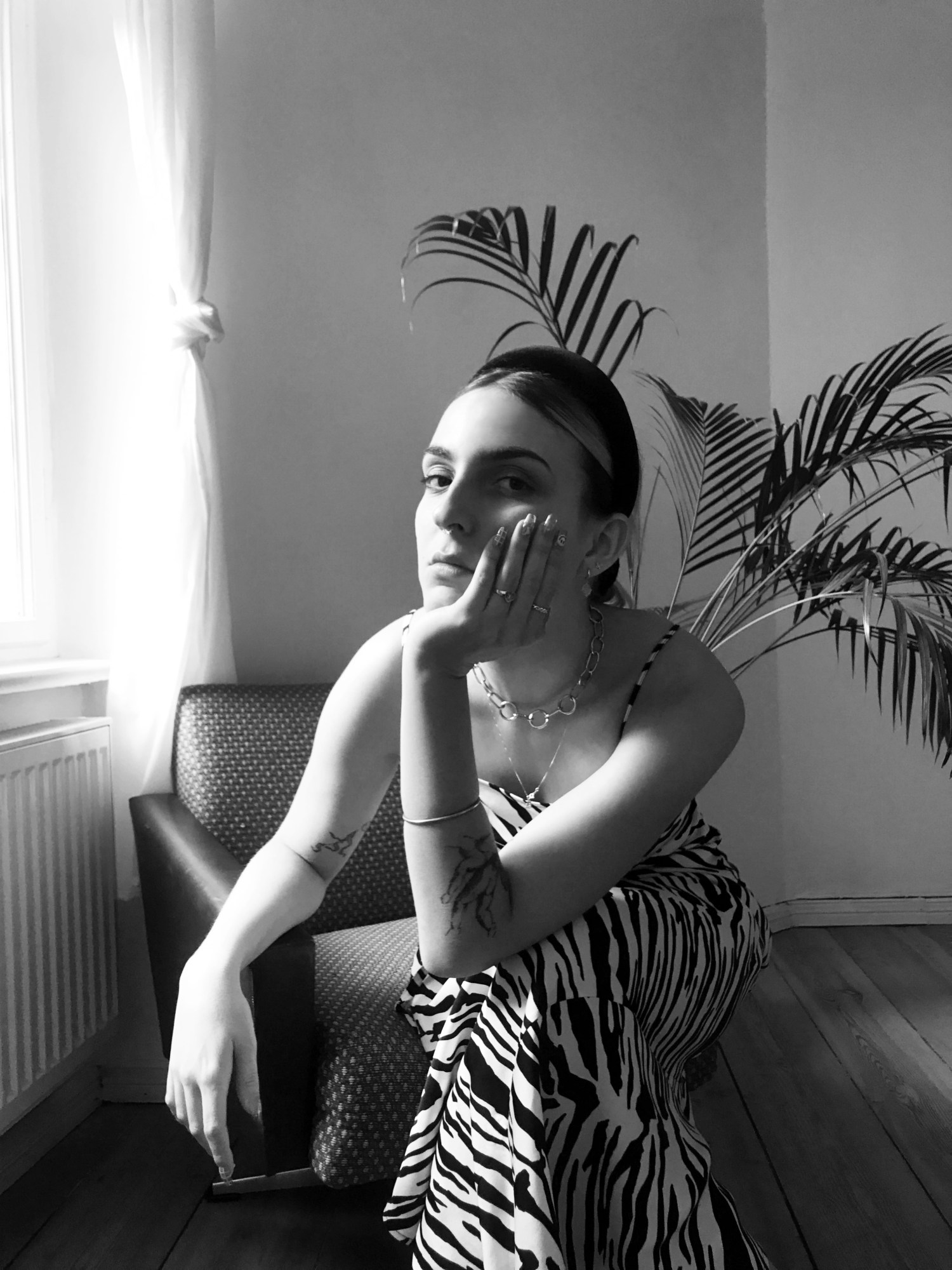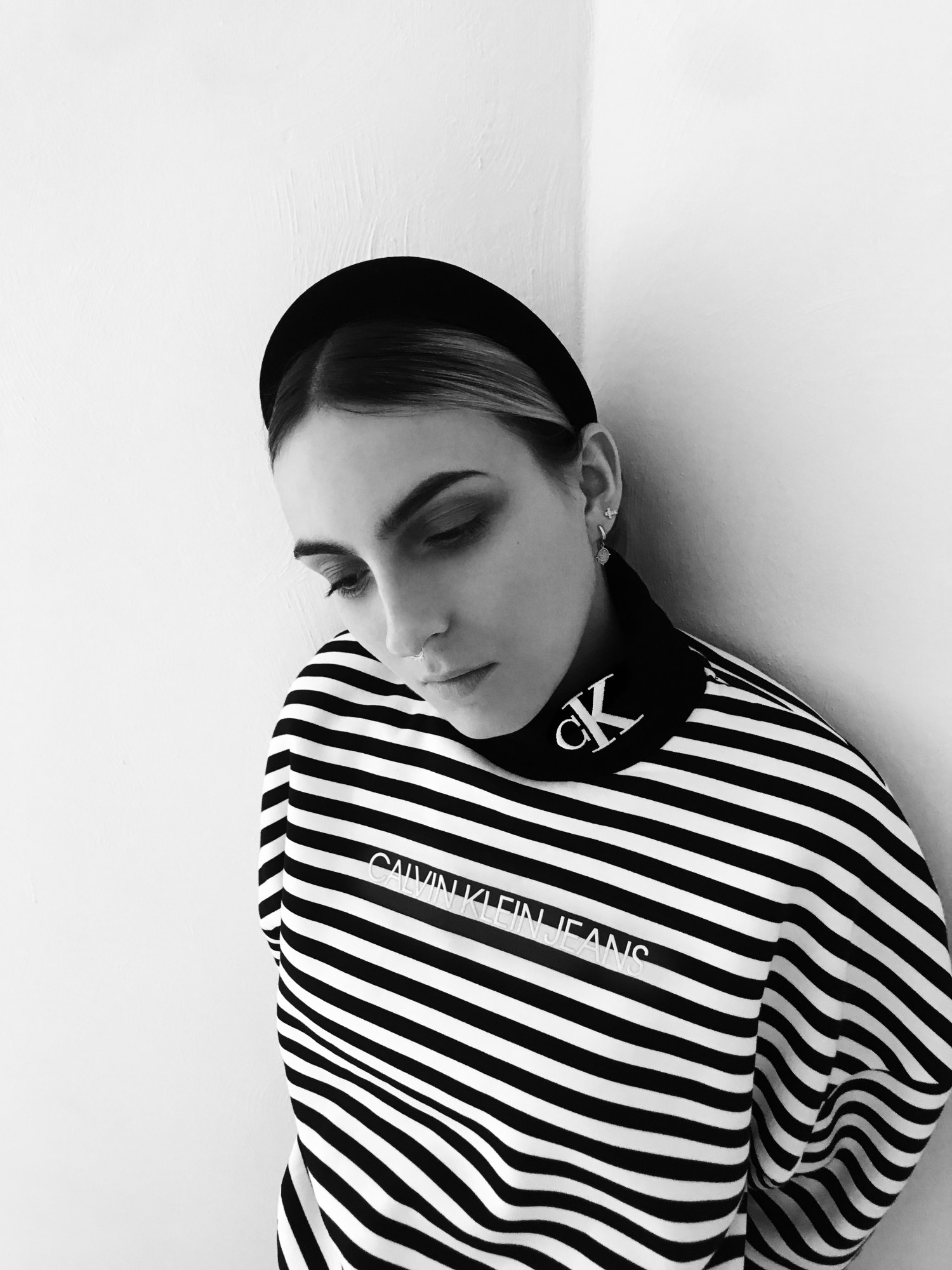To celebrate Calvin Klein’s Pride collection, we speak to pioneering young queer artists across Europe. Next, Berlin-based artist and intersex activist Dani Coyle discusses why intersex people need to be invited into the queer conversation.
Over the course of this year, we’ve all experienced moments when it’s been tough to find cause for celebration — and for members of queer communities especially, 2020 hasn’t exactly been one big parade. Still, though coming together in the flesh to celebrate our identities and communities may have off the cards this year, queer folks around the world have demonstrated inspiring dynamism and resilience. We’ve proven that queer pride lives long beyond the confines of a single Pride parade or month — it’s something we each carry within us, every day of every year.
To celebrate the joy of self-expression and the full spectrum of LGBTQIA+ identities, Calvin Klein launched #PROUDINMYCALVINS, inviting nine trailblazing queer individuals from across the globe to express their most authentic selves in a series of videos and stills. Over the course of this year, Calvin Klein has also teamed up with global queer community leaders to celebrate themes of love, family, coming out allyship and identity — they’ve also released a Pride collection to boot, available all year round. Eager to keep the party going, i-D enlisted five emerging LGBTQIA+ artists to discuss what pride means to them, the communities their part of, what makes queer life in the cities they live in so exciting, and the changes they want to see made in the ongoing fight for queer equality. Our final interviewee is Dani Coyle, the face behind @inter_sexy. Using her talents as a creative designer, she seeks to move the conversations around being intersex away from the exclusively pathological and into a fun pop-cultural realm.

What does pride mean to you?
Being able to express every part of your identity, even if it's contradictory. And I think it's about refusing to be stereotyped. Queerness has no aesthetic, and there are no predetermined things you have to be. Pride means accepting all of those things in people
What gives you the most pride in what you do?
Firstly, coming out in general, just because I never thought I'd do it. I'm cis-presenting, which is a blessing and a curse, and there was definitely a part of me that thought I’d never have to, that my life would be easier if I didn’t. Another thing is being able to be the person that I wish I had had when I was younger. When I was told I was intersex, they said there weren't enough people in England to make a support group. In fact, about 2% of the world's population is intersex, and there are now so many out activists online that I could have connected with. I feel so proud when people message me and say, 'I'm thinking about coming out now because I've seen your account,' or 'My daughter just told me that they were going through the same changes that you experienced and it's so great to see somebody whose life hasn't been ruined by it.”

Has your creative work informed your journey of identity discovery?
100%. I feel like a lot of it has been me working out how I feel about it myself. There have been certain things that I wouldn't feel comfortable talking about and then I'd make work out of it and post it, and then realise that I'd talked about it — it almost happens by accident, which is nice.
What are the best things about being queer, intersex and living in Berlin
It's super special here, there's such a huge queer community. And there are so many queer spaces that you can express yourself in. I think it definitely took me being in Berlin and having the people that I do around me to feel comfortable enough to fully come out.

Do you consider yourself to be part of a particular community?
Yes, the intersex community, which is incredible. We're quite spread out and based online, but it means I've met so many people in other countries — I'll go to New York, for example, and be able to meet up with people. It's so great to not have to explain yourself, which is very rare, even with best friends or other queer people. Intersex definitely needs to be more invited to the table and more included in LGBTQ+ spaces, but we also have our own distinct issues in terms of rights violations, for example, so speaking to other intersex people is just amazing.
It’s often said that the first Pride was a riot — half a century on from Stonewall, what do you think we still need to be fighting for?
So much of the world still doesn't know that intersex exists. Even if you've heard of the term, people still don't know what that means for our day-to-day lives. Things like how our bodies differ, how it affects the way we access health care, how we date. I'm hoping that we're at the point of tipping the wave for intersex visibility and advocacy, with things like the Justice Project and the first hospital banning intersex surgeries on children in Chicago, but I think that the queer community really need to turn up for those most marginalised at the moment. We need to be brought in more.
